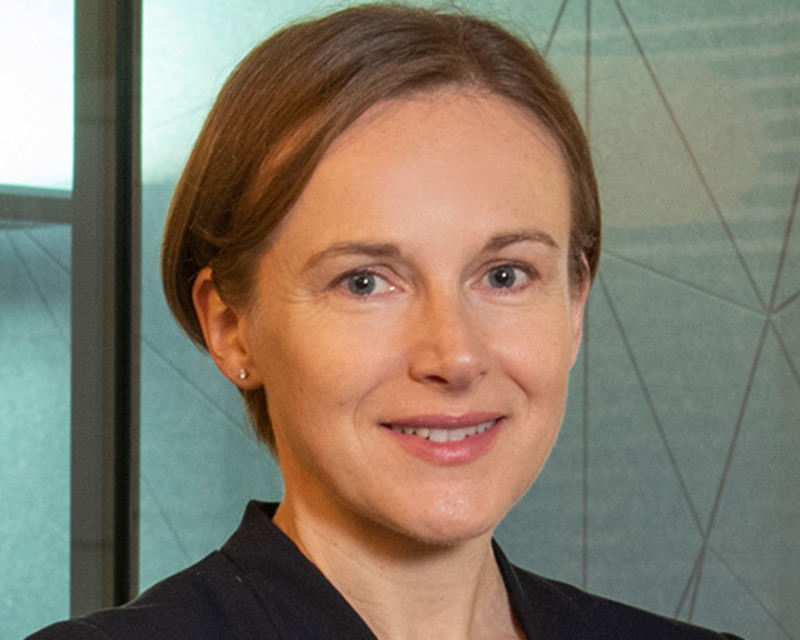

Raising the bar on sustainable credit investing with the SDG Framework
Sustainable investing requires investors to be able to determine to what extent an investment aligns with their sustainability objectives. But there are very few methodologies available for screening and monitoring investments for their ESG-related and impact characteristics, let alone ones that are widely accepted and simple in application.
Resumen
- The Robeco SDG Framework is a clear and consistent way to assess a company’s contributions to the SDGs
- Screening credit holdings for their SDG impact enhances our ability to screen out poor performers
- We believe this tool provides information that helps drive the momentum on sustainable investing
To fill this gap, and to ensure meaningful progress with its sustainability ambitions, Robeco developed its own methodology, the Robeco SDG Framework.
The methodology is based on the UN Sustainable Development Goals (SDGs) – which represent a comprehensive set of universally adopted ambitions – and is a clear, consistent and replicable approach for assessing a company’s contributions to the SDGs.
It consists of a three-step sequence that starts by assessing the impact of a company’s products and services on broader society. This is followed by an investigation of the company’s operations, and then a screening of controversies that could negatively influence the SDGs.
The final results of this three-step analysis are quantified in an SDG score. Positive-impact companies can receive an SDG score of +1 to +3 (lowest to highest) depending on the strength and quality of their contributions to the SDGs. Similarly, negative-impact companies receive SDG scores of -1 down to -3 (the worst), depending on the extent to which they detract from the SDGs.
Robeco has a range of fundamental SDG-related fixed income strategies that use the SDG Framework to determine their investment universe. Strategies with the strongest sustainability profile invest only in bonds with an SDG score of zero or higher, while other strategies can also allocate a limited proportion of the portfolio to issuers with an SDG score of -1 and that are considered to be in transition.
In addition to being applied to these SDG-related credit strategies, Robeco’s SDG Framework is also employed in the fundamental credit reports described in the chapter on the ESG integration framework. These reports form part of the input for the issuer selection process for all Robeco’s credit strategies. This reflects the view that companies producing unsustainable products and services could face additional and financially material risks, which in turn could pose risks for credit investors.
“Empirical evidence supports our view that screening credit holdings for their SDG impact and sustainability characteristics is positive for performance in the sense that it enhances our ability to screen out poor performers – without impeding our capacity to generate alpha through issuer selection,” says Rachel Whittaker, Head of SI Research at Robeco.

¿Qué puntuación de sostenibilidad tienen las empresas y los países?
Explore las contribuciones de las empresas a los Objetivos de Desarrollo Sostenible y la clasificación de los países en función de criterios ASG.
A novel approach
Jan Anton van Zanten, SDG Strategist at Robeco, considers the methodology to be unique. “I think the importance of the framework is that it is novel. A lot of sustainable investors still focus mainly on avoiding ESG risks, while very few are truly targeting companies with positive impact. And I think our SDG Framework is innovative in that it is an absolute framework that judges companies based on their contributions to the SDGs.”
Reinout Schapers, who is a portfolio manager for, among others, RobecoSAM Global SDG Credits, says the framework positions investors to raise the bar on sustainability, year after year. “For our SDG-focused credit strategies, the set-up is such that you are setting a minimum standard and continuously progressing toward something even better.”
Even for strategies that do not invest with an explicit goal of contributing to the SDGs, the framework helps create better outcomes. According to Schapers, it means he and his colleagues are better informed about companies’ longevity and resilience because they gain insight into which businesses or industries have outdated business models or are vulnerable to being left with stranded assets, for example. “In fact, I believe that as investors we are developing the discipline of adopting a much longer time horizon.”
With expanding regulatory oversight to ensure that investors can substantiate sustainability-related claims, the transparency and replicability of the SDG Framework are especially relevant features.
The EU Sustainable Finance Disclosure Regulation (SFDR), for instance, requires asset managers marketing investment solutions in the EU to provide comprehensive sustainability disclosure. “The SDG Framework is a very good tool for aligning with this important requirement, in that we can conclude that a company with a positive SDG score could be considered a sustainable investment,” Schapers says. The same could apply to the UK’s forthcoming Sustainability Disclosure Requirements (SDR) regulation.
Quantifying the contribution to the SDGs
Robeco has continued to develop the application of the SDG Framework, which goes beyond generating an SDG score. “While the SDG score is of course a very good indication of the expected positive impact of an issuer, there is tremendous value in being able to quantify that impact, and in particular the impact that a client’s capital is supporting,” Van Zanten says.
For instance, a pharmaceutical company could receive an SDG score of +2, indicating it has medium positive impact, thanks to the fact that it manufactures adequate and safe medicines that help reduce mortality and morbidity. Only by quantifying the outputs and outcomes that investee companies provide, can the real-world effects of a particular investment be evaluated.
To this end, the Robeco SDG team developed a framework through which companies’ contributions to relevant SDGs are captured in a concise, consistent and comparable manner. It generates metrics that are linked to official SDG targets and indicators. Paul Ruijs, Impact Specialist at Robeco, explains that for holdings with a positive SDG score, the overall contribution to these targets and indicators is quantified. Examples include gigawatts of clean energy generated by the company, cubic meters of clean drinking water distributed, or the value, in billions of euros, of mortgage financing provided to low and middle-income households.
“And based on our approximation of the total impact that a company has, we then attribute a portion of this impact to our investment, depending on the proportion of the issuer’s outstanding capital that we are financing.”
The ultimate objective of these metrics is to illustrate to clients why portfolios are invested the way they are, to further the education process, and therefore to help drive the momentum on sustainable investing.
Van Zanten concludes that, if you claim to be a sustainable investor, you need to invest in things that are good for the world. “To do that, you need a metric and a sound methodology. I believe we were one of the first to create a metric that measures sustainable impact. And that’s clearly a positive development for our clients.”
This is an extract from a longer publication:
Acceda a las perspectivas más recientes
Suscríbase a nuestro newsletter para recibir información actualizada sobre inversiones y análisis de expertos.























